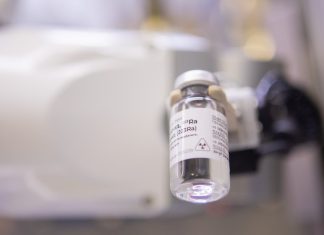Alexander Terentyev
Cosmetology is one of the most intensively developing branches of medicine. In Russia, the industry employs more than 40,000 specialists with higher and secondary medical education. However, the sector is far from being all calm and positive.
It is no longer a secret that the grey market of cosmetology has become alarmingly huge. Yes, it exists all over the world, but on a much smaller scale. Illegal cosmetology causes huge damage to patients, medical institutions, and the state. This problem has three main components: illegal medical services, service providers without medical education, and, of course, illegal circulation of medicines and implantable medical devices.
All that creates risks for patients, and there are numerous cases of harm to health and even some lethal outcomes. Patients apply to clinics with most severe complications, and they often cannot say who administered the injection to them, where and with what product. Only the state can solve this problem through a systemic approach.
Today, anyone can buy cosmetology products, such as botulinum toxin, fillers, filaments, or biorevitalizants, and anyone can even order them online. If they can be freely purchased, and no one asks for any medical documents, that means people can use it. And it is only the ethical standards of each individual that determine where and how to use these products.
The National Association of Aesthetic Medicine Clinics, which today has the status of a self-regulatory organization and brings together almost 50 Russia’s leading clinics, believes that it is worth starting with the control of the free sale of medicines used in cosmetology to individuals, first of all, the sale of botulinum toxin. These medicines belong to the category of immunobiological drugs; they require a special storage regime, a proper dilution, and must be used by a person who has special skills. These medicines are used both in cosmetology and in neurology. Today, they are freely sold to individuals on prescriptions that are neither registered nor controlled today. The transparency of the circulation of medicinal products in medicine, including in cosmetology, can be enhanced by the system of medicines circulation monitoring. It makes it possible to clearly track all the sales channels of medicines, and if the drug was not marked, it will be definitely classified as an illegal product, and a clinic that uses it will have to pay a fine or may even have their licence suspended. However, the purchase of cosmetology products with special marks by individuals is not controlled in any way. The share of unregistered medicines on the market is not so large, amounting to 5-6%, whereas the share of all illegal services in cosmetology is estimated at 50%. This suggests that doctors, mid-level health professionals, as well as people without medical education, provide injection cosmetology services outside of licensed institutions, e. g., in beauty salons or at home. These activities are outside the law. And here, we notice something which is the worst of all. We ourselves give offenders an opportunity to offer illegal treatments.
Another important step is the introduction of mandatory marking of implantable medical products in cosmetology, e. g., fillers, filaments, and biorevitalizants. They should be sold only to legal entities that have a medical license. Let me give you a simple example: everyone understands that an intraocular lens is a medical device, but no one ever decides to go themselves to buy one, bring it to the surgeon and say: “I’d like to have this lens implanted, please!”. But in cosmetology, things like that happen all the time.
We believe that to overcome this situation, the state has to introduce two important measures: mandatory marking for medical products and the control, up to prohibition, of the sale of cosmetology medicines and medical products to individuals, so that only legal entities with appropriate licenses can purchase these products. The problem can be overcome only based on a systematic approach and with state support. At round tables and thematic events, we see that the regulatory authorities hear us and support our initiatives. This is very appropriate, and we are sure that our suggestions will soon be included in the corresponding regulatory documents. The future of aesthetic medicine in Russia will be based on rules that are transparent and clear for everyone: the state, patients, clinics, and doctors. This is the foundation of the security and prosperity of our industry. We stand for responsible cosmetology!





